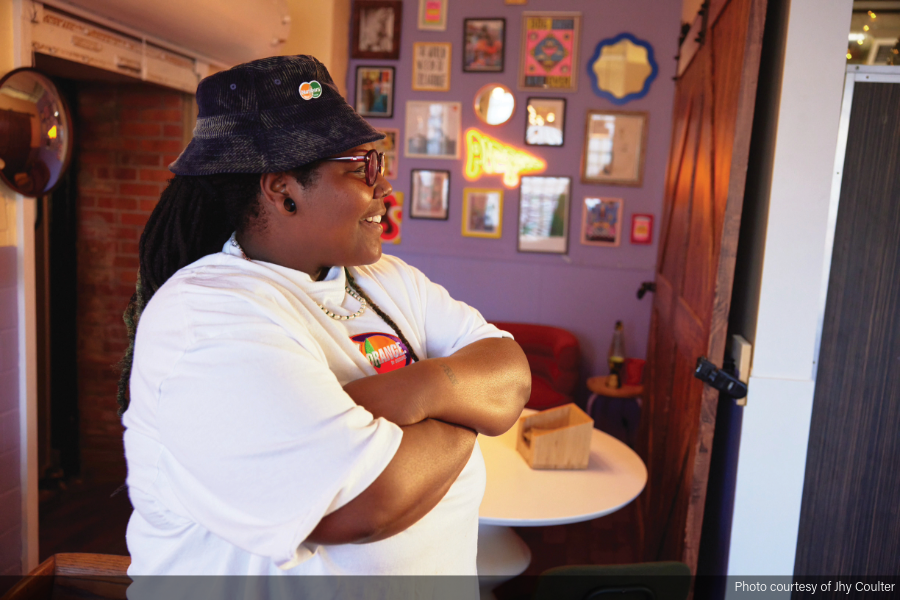
“Your pizza sucks,” signed an ambiguous online customer reviewer.
Most operators can relate to receiving a similar review on one of the many user-generated customer review Web sites. It’s just sitting out there for the world to see when someone searches for your pizzeria online.
There’s a buzz from owners who are finding online user-generated reviews frustrating and downright unfair. Others choose to ignore them all together. Big mistakes, says Kathleen Ion, Internet marketing consultant at WSI IM Solutions, LLC in Phoenix, Arizona. “You have an online reputation whether you want one or not,” she says.
With the popularity of mobile devices and apps designed to make reviewing quicker and easier, Ion says the use of online review sites is only going to grow.
Your online reputation encompasses more than review sites, it also includes comments on social media sites like Facebook, Twitter and Foursquare, as well as the wide blogosphere.
Projecting a positive online reputation lies in your hands. As the saying goes, “The best defense is a good offense.” There are a number of avenues you can take both on and offline. First things first –– claim your business on customer review sites, putting you in charge of those reviews by giving you the option to respond to positive and negative reviews. It also gives you the ability to post menus, photos and links to your Web address and e-mail.
Monitor your online reputation, whether you do it yourself, assign it to a crewmember or hire outside help. The first two may not cost you a dime. But if you choose to hire an outside monitoring service, prepare to pay. “It’s really comparable to advertising,” Ion says, adding that a proprietary system that monitors a company’s rep can cost $400 per month to several thousands depending on how aggressive they want to monitor.
If you’re handling it yourself, Ion suggest that you should visit Google, Bing and Yahoo daily to search your restaurant’s name to see what is popping up. She also suggests searching review sites, as well as Facebook and Twitter for comments about your place.
There is nothing wrong with asking your loyal customers to post reviews. “Institute a process or procedure for their wait staff — when customers are very happy — to ask them to post a review,” Ion says. If the occasional bad review occurs, Ion says, “if there is enough (positive) stuff out there about them, before long the good is going to outweigh the bad.”
Post QR Codes directing customers to review your restaurant on sites like Yelp, Urbanspoon, Google, etc., Ion suggests. Place flyers at the register and table tents requesting reviews.
It’s not tragic to have the occasional bad review, Ion insists. Operators can learn of areas to improve. She adds, “it makes things sound more believable instead of seeing nothing but five-star ratings.
So what do you do about a bad review? Respond. “If it’s someone you know, then by all means call them,” Ion says, explaining that the customer may pull down the review if you attempt to rectify the situation.
If your only option is to reply online to the comment, “Explain your side but don’t be contrived and don’t insult them…just be professional,” Ion says.
An area of concern for many operators is “fake” comments by competitors and former employees. In this case, you have an option to appeal to the review site itself. Have your ducks in a row with the information on the individual in question. Review sites require its posters to sign up so they do have some information regarding the person. Ion says in those cases sometimes the site will take the reviews down.
Los Angeles-based Fresh Brothers Pizza has a strong online reputation, with a four-star rating on most review sites. They stay proactive by receiving Google alerts, a free service that lets them know when the pizzeria is mentioned. When Fresh Brothers receives a bad review, owner Debbie Goldberg says, they “remain calm, cool and collected. We address the problem or complaint. We ask for their address so we can send them a gift certificate and then we encourage people to update their reviews.”
Craig Mosmen at The Couch Tomato Café in Philadelphia, Pennsylvania, says the pizzeria’s online rep is important. “Our marketing feedback forms provide us with proof that many new customers find us online, and try us out because of our online reputation.” He personally checks his Web site feedback and comments left on Urbanspoon, Yelp, Menupages, Yahoo, Bing, Google, Zagat, and Insidepages almost daily.
Melissa Ferriman of Crazy Dough’s Pizza in Boston is quick to respond to online comments and she’s noticed a trend. “I have found that if they know you are out there actually reading and responding to your online feedback, they will spend the time to give you real information that can help you improve your business and gauge how you are doing,” she says.
And sometimes, it’s just good to have a little fun with reviews. Staff members at Pizzeria Delfina in San Francisco were brainstorming ideas for new crew shirts. “As a joke, they thought it would be fun to print bad Yelp reviews on t-shirts,” says owner Anne Stroll.
Ann chose the five worst reviews like “This Place Sucks!” and “The pizza was soooo greasy. I am assuming this was in part due to the pig fat.” The reviews were placed in large, white, all-caps lettering on black t-shirts. Staff members loved them and still continue to wear them today, she adds.
Not intended to be a publicity stunt, Pizzeria Delfina made local and national news for its staff’s ingenuity.
Just like other aspects of your business, have a plan to create a positive online rep.
Denise Greer is associate editor at Pizza Today.





